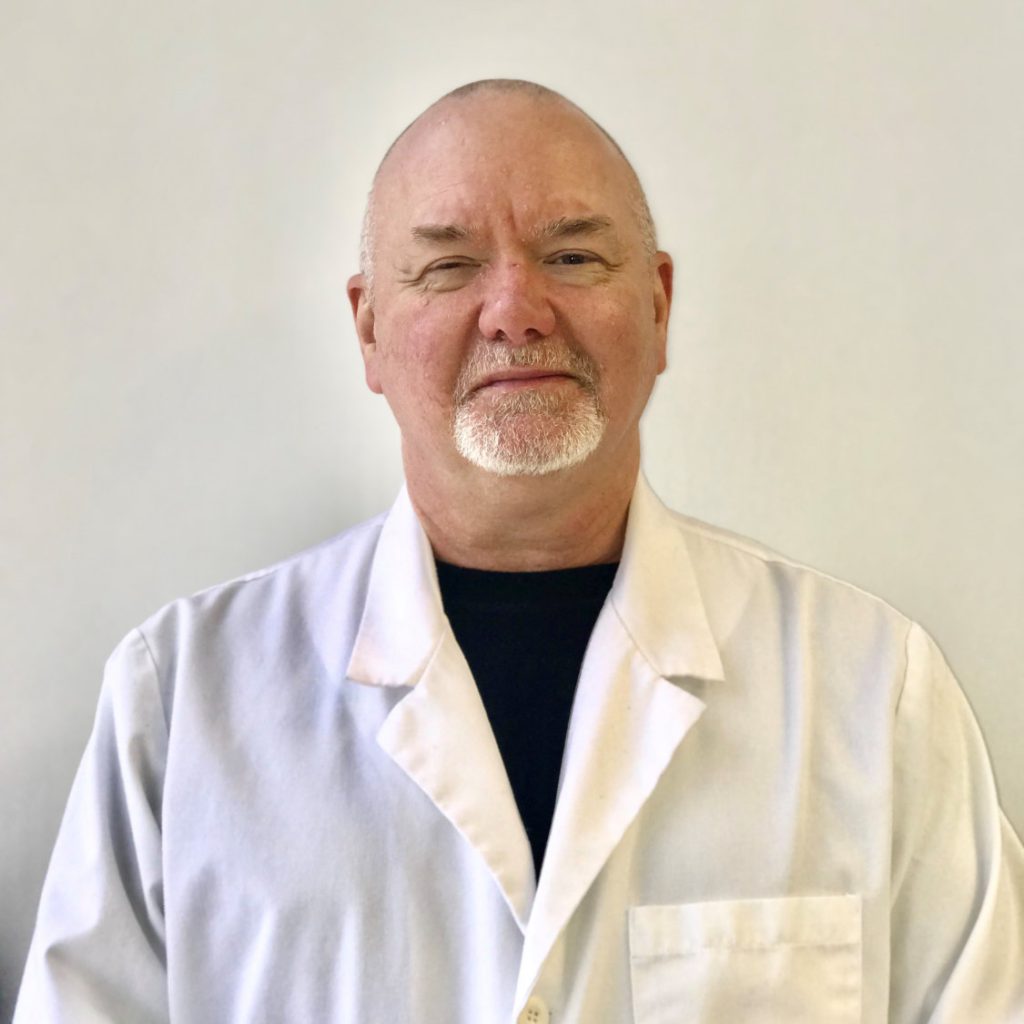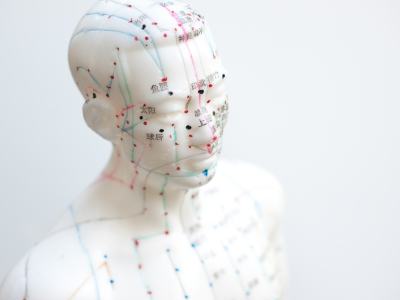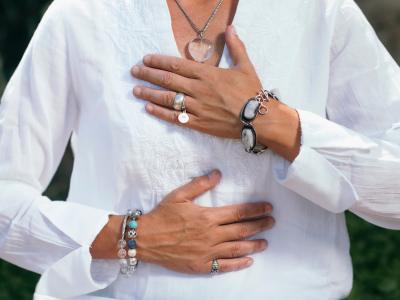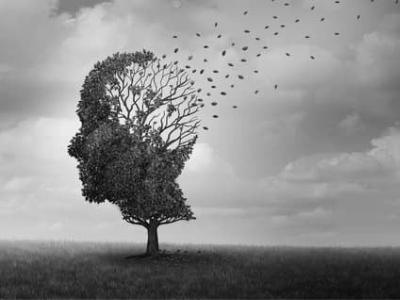In honor of Mother’s Day, I wanted to focus on something that I hear about quite frequently in the clinic—the struggle to maintain a connection with children in a culture where digital media and peers are often given more value than family. I see a growing sense of anxiety about how to maintain a meaningful connection with those they love. And yes, all of these same struggles and concerns are felt by dads too! (More on that next month!)
In today's digital age, social media has become a predominant force in our lives, often affecting the way we connect with others, including children. As a result, many people experience anxiety and disconnection from their children due to the constant distractions and pressures of social media. These pressures can be both from the parent’s relationship with social media and their children’s. By implementing some simple tips and strategies, you can enhance your relationships with your children and reduce anxiety in the process.
1. Quality Over Quantity: In the age of social media, it is easy to get caught up in the quantity of time spent with our children rather than the quality of that time. Instead of being physically present but mentally distracted by social media, prioritize being fully engaged and present with your children during the time you spend together. This can include setting aside dedicated device-free time for bonding activities such as playing games, going for walks, or simply having meaningful conversations.
For example, instead of scrolling through social media while your child is talking to you, put your phone away and actively listen to what they are saying. Engage in a genuine conversation and show that you value their thoughts and opinions. Quality time is essential for building a strong connection with your child.
2. Active Listening: One of the most effective ways to connect with children is through active listening. By showing genuine interest in their thoughts, feelings, and experiences, you can strengthen your bond with your children and create a safe space for open communication. This can be achieved by putting away devices, maintaining eye contact, and practicing empathy and understanding. In addition, remember to listen to understand and ask clarifying questions to help ensure you understand the other person fully.
For instance, when your child (or anyone else) shares something important with you, give them your undivided attention. Put your phone on silent and make eye contact to show that you are fully present. Ask open-ended questions to encourage further conversation and let them know that you are actively listening and interested in what they have to say.
3. Lead By Example: Children learn by observing the behavior of their parents, so it is essential to model healthy social media habits and prioritize real-life interactions over virtual ones. You can instill these values in your children and strengthen their relationship skills by demonstrating the importance of face-to-face communication, active listening, and genuine connection.

4. Remember its Design: Every social media platform is designed to be addictive to trigger an unconscious-seeking reflex and keep you scrolling. Much like our food system has invested in understanding how to keep you buying their food-like product without thinking about that choice, our digital platforms are investing in keeping your interest—it’s how they successfully place ads for your consumption and make their money. I’m not saying trash your accounts and eschew the internet. I am saying to be mindful of the purpose of these systems and use them for your benefit rather than allowing yourself to be used by them.
For example, make a conscious effort to limit your social media usage. Instead, spend quality time together engaging in activities that promote bonding and connection. Show them that relationships and interactions in the real world are more valuable than virtual ones!
The prevalence of social media in our daily lives can pose challenges to meaningful connections with our children. By prioritizing quality over quantity, practicing active listening, and leading by example, you can reduce anxiety and foster deeper connections with your children.
Some recommended reading: Hold On to Your Kids by Gordon Neufeld, PhD
If you want to challenge your thinking, Punished by Rewards by Alfie Kohn, presents some radically different ideas on how we relate to our children and makes some good points about how thinking about how and when we use extrinsic rewards may deepen our connection with others—especially kids.
Admittedly, online safety isn’t something you see a healthcare professional for—but I do see a lot of email and user names on intakes and in our system. I am amazed at how much information people accidentally give away with their choices. Many of you know I was an officer in the Navy. What many of you may not know is that while my official designator was “Naval Nuclear Power Officer” my actual expertise and where I spent the most time working as an officer and civilian employee of the Navy after that—was in something called “Anti-Terrorism and Force Protection”. Under the “Force Protection” side, we trained sailors in basic self-defense practices for better personal safety (situational awareness, evaluating risk) and online safety.
In the years since then, I have seen friends' children stalked by online predators, some of whom even came calling in person. I have watched people give away critical personally identifying information unintentionally, and more shockingly, worked with a surprising number of people who are survivors of sex trafficking. The majority of those survivors were not trafficked in foreign countries—it was right here at home. Some were recruited by school friends, some by family members, and some by people they met online. Many of those school friends knew to target them because they had been identified in advance through their online profiles. So in the spirit of being smart and protecting yourself online, here are some basic prevention measures lessening the odds of the minor annoyance of having your Facebook account hacked—to the major annoyance of having your bank account hacked—or the nightmare of having your child targeted online.
Do’s:
Any of these as part of your username or your email gives away information that makes it easier for someone to impersonate you online.


In one case, a scammer texted a photo of “his” driver’s license to prove who he was (a blurry hard to read one that clearly was fake to someone with good eyes) but to an elderly woman with poor eyesight who assumed that if he sent his drivers license, it must be legit! She was lonely and he was very interested in her and she wanted it to be true—if only she could send him some Apple gift cards and an iPad, he would trade those for a bus ticket to come meet her in person…She ended up selling off most of her jewelry and using most of her savings to “help” him and then once she was out of money—he vanished and ghosted her.
Good online safety practices can reduce the stress and anxiety of being online. Practice what you preach to your kids and take care of your elders online too!
Our acupuncture team at Raja Wellness provides a diverse set of experiences and skills. As the owner and clinical director, I have made it a point to find others who share my work ethic and passion for healing. In addition, I look for a diverse skill set. I wanted to take a moment to review our dynamic and exceptionally talented team.

Robert Cecil, LAc - Robert has a passion for healing and a talent for orthopedic and neurological issues. He works with a lot of our veteran patients addressing a diverse range of conditions from chronic pain to neuropathy to PTSD. In addition, his experience with Frequency Specific Microcurrent and Estim scar release techniques provides additional healing modalities in addition to acupuncture.

Fielding Carroll, LAc - For those dealing with chronic digestive disorders such as Chrohns and IBS, Fielding has developed a unique approach combining personalized nutritional therapy with acupuncture to help people radically change their digestive health. Patients report relief from decades-long issues after only a handful of treatments. He is also skilled in Soliman’s Auricular Allergy Treatment (SAAT), offering significant allergy relief from conditions like Alpha-Gal.
Our newest member, Jason Macko, LAc is trained in the 5 element technique, offering a gentle and integrated approach to complex conditions. In addition, he will be part of our team offering SAAT for Alpha Gal and other allergies. He is passionate about helping athletes optimize their performance and recover quickly from injuries. He is also skilled at handling complex cases and helping people reach optimal health.

Together, we offer a wide range of expertise and services to address the mental and physical well-being of our patients. Considering acupuncture as part of your healthcare regimen can be a transformative step toward holistic wellness! By seeking the expertise of a skilled acupuncturist, you embark on a journey to balance and restore harmony within your body, mind, and spirit. Whether you're seeking relief from pain, stress reduction, chronic issues, or overall health improvement, acupuncture offers a gentle yet effective approach rooted in ancient wisdom.
Your path to optimal health starts with a visit to an acupuncturist—discover the profound healing potential of acupuncture today!
Yours in Health,
Jenny-Marie Greenough, LAc
Why are we so passionate about mental health at Raja Wellness?
The link between mental health and cardiovascular health is quite significant. Stress, especially chronic psychological stress, has a profound impact on the cardiovascular system. When the “stress response” is activated, the body secretes glucocorticoids, epinephrine, and other hormones, while inhibiting the secretion of growth hormone, insulin, and reproductive hormones. The sympathetic nervous system is also activated, leading to increased heart rate and blood pressure, among other physiological changes that divert blood to areas needed for immediate survival, such as the muscles and lungs, and away from non-essential areas like the gut and reproductive organs. This response is adaptive in the short term, but chronic activation due to chronic stress can lead to serious cardiovascular issues such as hypertension, atherosclerosis, and myocardial ischemia.
This connection between mental health and cardiovascular health highlights the intricate intertwining of psychological and physiological factors. The body's response to chronic stress can have detrimental effects on the cardiovascular system, emphasizing the importance of managing and addressing mental health to promote overall well-being, including cardiovascular health.

Acupuncture has many benefits for cardiovascular health:
1. Stress Reduction: Stress is a known risk factor for cardiovascular diseases. Acupuncture has been shown to modulate the body's stress response, potentially reducing the impact of stress on the heart and blood vessels.
2. Blood Pressure Regulation: Studies indicate that acupuncture may help in regulating blood pressure. By targeting specific acupuncture points, practitioners aim to optimize blood circulation and blood pressure levels, contributing to better cardiovascular function.
3. Inflammation Management: Chronic inflammation is closely linked to cardiovascular conditions. Acupuncture may exert anti-inflammatory effects, potentially reducing the systemic inflammation associated with heart disease.
4. Enhanced Circulation: The stimulation of acupuncture points is believed to enhance microcirculation, improving blood flow to vital organs including the heart. Enhanced circulation can promote heart health and overall cardiovascular function.
5. Complementary Therapy: Acupuncture is often used as a complementary therapy alongside conventional medical treatments for cardiovascular issues. It may help alleviate symptoms, improve overall well-being, and enhance the effects of standard cardiovascular care.
While acupuncture has clear benefits for cardiovascular health, we recommend individuals consult healthcare professionals before integrating acupuncture into their treatment regimen. Moreover, acupuncture alone may not be enough for people dealing with chronic stress.
Learning to manage our stress is a key part of maintaining heart health—and that’s where professional mental health care is so important as part of your overall wellness.
Herbal formulas also play an important role in heart health. Many formulas have been shown to reduce cholesterol and blood lipid levels, decrease inflammation, and increase peripheral circulation. For example, Clear Mind Formula is one of my favorite herbal formulas for heart health, especially here in Kentucky because of its natural antifungal and antimicrobial properties. This is a raw herbal concoction that we make in-house. We do recommend consulting with a trained herbalist before incorporating any herbal remedies into your care plan.
or
For more information, please don’t hesitate to call us at 270-506-3853 today!
References:
1. Wayne PM, Kaptchuk TJ. Challenges inherent to t'ai chi research: part II-defining the intervention and optimal study design. Journal of Alternative and Complementary Medicine. 2008;14(2):191-197.
2. Fu, C., Zhao, N., & Liu, Z. (2013). Chronic pain: acupuncture and related therapies. Springer Science & Business Media
3. Chen J, Ye C, Yang Z, Zhang C, Li P, Xu B, Wu A, Zhang X, Xue X. Erchen decoction to reduce oxidative stress in dyslipidemia phlegm-dampness retention syndrome mice: In vivo mechanism revealed by metabolomics (liquid chromatography-mass spectrometry). Phytomedicine. 2023 Jul;115:154808. doi: 10.1016/j.phymed.2023.154808.
After enjoying a delicious meal, we may be tempted to kick back and relax. However, emerging research suggests incorporating a brisk walk into your post-meal routine can offer numerous health benefits. From improved digestion to better blood sugar control, the advantages of walking after eating are backed by scientific evidence!
Enhanced Digestion:
One of the primary benefits of walking after eating is improved digestion. Physical activity helps stimulate the digestive system, encouraging the efficient breakdown of food. A study published in the "Journal of Gastrointestinal and Liver Diseases" found that post-meal walks accelerated the rate at which food moved through the stomach and intestines, reducing feelings of bloating and discomfort.1
Blood Sugar Regulation:
Walking after a meal may contribute to better blood sugar control, especially for individuals with or at risk of type 2 diabetes. A study in the "Diabetes Care" journal demonstrated that a short, 15-minute walk after each meal significantly lowered post-meal blood sugar levels in individuals with type 2 diabetes.2
Weight Management:
Incorporating walking into your post-meal routine may contribute to weight management. A study published in the "Journal of Physical Activity and Health" found that individuals who engaged in post-meal walks experienced reduced blood triglyceride levels, which are associated with improved metabolism and weight control.3
Mental Well-being:
Physical activity, including walking, has been linked to improved mood and reduced stress levels. Taking a short stroll after a meal can help combat feelings of lethargy and promote a sense of well-being. A review in the "British Journal of Sports Medicine" highlights the positive impact of physical activity on mental health.4

Sometimes, walking may not be an option, and that’s ok! The subtle strength of any low-impact exercise offers wonderful benefits and is accessible to individuals of all ages and fitness levels. Low-impact exercises such as using a rebounder or simply bouncing in place for 2 minutes can offer similar physical and mental health benefits!
The evidence supporting the benefits of walking after eating is compelling. From aiding digestion and regulating blood sugar to contributing to weight management and mental well-being, taking a post-meal stroll or even bouncing in place is a simple yet effective way to enhance overall health!
Incorporating this habit into your daily routine may lead to long-term positive outcomes, making it a small step with significant health rewards.
Sources
It’s looking like Newvember with all the great changes we have coming!
Raja Wellness welcomes Fielding Carroll, LAc! Those of you coming in to see us for allergy treatments recently have probably already met Fielding. Fielding is a native Kentuckian and a classmate of mine from Acupuncture school. I am happy to welcome him aboard to our team! He’s been diligently learning the nuances of SAAT (our specialty acupuncture technique for alleviating allergies of all kinds that was pioneered by Dr. Soliman). In addition to his focus on mastering this new technique, he brings a wealth of experience in the treatment of digestive disorders and health coaching embracing food as the first medicine and foundation of better health! In addition to offering acupuncture services, personalized nutritional coaching is also available with Fielding.

Fall wellness is a frequent topic for us—as the days get shorter and colder, it’s important to fuel our immune systems with adequate rest, plenty of fresh fruits and veggies and to reduce junk foods from our diet. Our gut and immune systems are intimately intertwined and for some people, probiotic support may be helpful in addition to meditation, immune-supporting herbs, and preventative acupuncture care.

As we move forward toward 2024, we want to let our patients know our prices will be going up. We strive to offer a range of services at affordable prices and as part of that commitment, we are announcing this change early to give patients the option to “stock up” on treatments at our current price. All patients currently scheduled will pay the price at the time their service was booked. Current patients can pre-pay up to 5 visits each at our current rates, but those visits must be used before Mar 31, 2024. Our new prices will go into effect Dec 1, 2023 for all visits booked after that date.
In addition, you will see some new options in our services including nutrition coaching with Fielding, FSM-only treatments, BrainTap sessions & Glow sessions (combined light therapy & FSM for renewed skin). With those new options, we are also testing out some membership options, giving patients access to a select combination of treatments monthly at a reduced cost for members. Watch your emails for early access to these!

Our online store is also coming back soon with some changes!
At Raja Wellness, we continually strive to make your shopping experience as easy and affordable as possible.
CBD is legal in all 50 states, yet some banks and credit card processors impart their judgments on access to these legal products by refusing to process transactions involving the sales of CBD products of any kind. Their oversight unfortunately incorrectly flagged our blog about the health benefits of CBD for osteoporosis as a “product for sale” and our processor held our funds and thus forced us to stop using them as a processor. This has been a gray area for many years and is one of the reasons you see CBD in our offices but not in our online store. Unfortunately, the list of companies that allow this is very short. Please bear with us as we continue to search for a more fair, CBD-friendly payment processor that also allows us to offer you the best prices and convenience.
In honor of Father’s Day, I wanted to take this opportunity to highlight how acupuncture and TCM helps men’s health; and to remind men that they need to take care of themselves too. Statistically men are less likely than women to seek health care and married men tend to see the doctor more often than single men, but still less often than women (even accounting for pregnancy needs). One of the biggest complaints I hear from male patients is they are too busy or they don’t want to walk out with another pill to take.
I started this with a search of “top reasons men go to the doctor” and could only find research and articles on why men should go to the doctor—it seems we haven’t really looked at why they do go when they do in much detail. I did find this gem from The Cleveland Clinic and their support of the MENtion It Campaign—an initiative to encourage men to seek care. Despite the fact that the majority of men want better health to care for their families, less than half of those who listed that as a priorit, seek regular care.
The top reasons why? They don’t want to know they have to make a lifestyle change, or fear of finding out what they have. We get it—but there are better options than neglecting your health. And if you don’t want to take a pill when things are going wrong, yes, you will need to make a change. But aren’t you and your family worth it? So if you have an issue—MENtion It! We are here to listen.
One advantage acupuncture has over other options is we treat the whole body during a session—you may be coming in for back pain or knee pain, but we will also be addressing sleep, digestion, immune function, endocrine balance and more. If you think about it, it is truly a great value! Similarly, our approach using herbal formulas is to select a formula that addresses as many issues at once as possible—so you can take one thing and have multiple issues get better. And unlike just treating a symptom, when we are able to get to the root of the problem, and as a result, you feel better and stay that way even without being on herbs all the time.

Menopause gets a lot of notice, but did you know men go through a similar process called Andropause? First written about in 1946, a landmark paper in JAMA entitled, “The Male Climacteric” characterized it with nervousness, reduced potency, decreased libido, irritability, fatigue, depression, memory problems, sleep disturbances, and hot flushes. Hypogonadism is broad scientific term and it refers to a “clinical syndrome caused by androgen deficiency, which may adversely affect multiple organ functions and quality of life.”1 Decreasing testosterone levels are linked to a number of disease processes and shorter life-span. The traditional approach is supplemental testosterone, but acupuncture and traditional East Asian herbal medicine have also been shown to regulate testosterone levels in the body, improve mood, sleep, endocrine function and cardiovascular health.
Speaking of hearth heath—statistically 1 in 4 men will die of heart disease and it’s complications. Men tend to develop heart disease earlier in life than women and are less likely to make the lifestyle changes necessary to reverse heart disease. Coronary artery disease is one of the most common forms of heart disease among men and responds incredibly well to lifestyle and diet changes. Tons of this research can be found here.
JAMA: Intensive Lifestyle Changes for Reversal of Coronary Heart Disease
If you made it this far into the article, congratulations! As a thank you for being loyal reader, use the code “mentionit” for 10% off you next order from our website. Discount code valid 6/15/23 - 7/15/23. Not valid with other offers, not valid for gift cards. Other restrictions may apply.
Did you know half of men who have heart attacks have no symptoms before it happens? Or perhaps, didn’t know they were having symptoms. One of the earliest signs of heart disease is erectile dysfunction. Another early sign of heart disease is new onset anxiety2. Mental health issues and heart disease are often tangled together and in many cases of anxiety being caused by low grade (not yet detectable) heart disease, the typical anxiety medications don’t work well. Acupuncture is very effective for both mental health and cardiovascular health—and as we mentioned above, can address both issues in the same sessions!

Last, but not least is prostate health. Benign Prostate Hyperplasia responds very well to acupuncture and herbal therapies3. Acupuncture can increase urinary output, reduce the size of the prostate, and beyond hyperplasia is effective for treating Prostatitis as well.
Harvard Study on Acupuncture Relieving Prostatitis Symptoms
These results tend to be long-lasting after the initial course of treatment. Prostatitis alone is responsible for over 2 million doctors visits a year, and is often recurring and has no clear cause. So even if we can’t convince you to see your doctor once a year (yet), schedule an appointment with one of our acupuncturists, check out our online resources, and remember—Dads are an important part of the family and it’s important they get the care they need so they can take care of others!
1 Singh P. Andropause: Current concepts. Indian J Endocrinol Metab. 2013 Dec;17(Suppl 3):S621-9. doi: 10.4103/2230-8210.123552. PMID: 24910824; PMCID: PMC4046605.
2 Celano CM, Daunis DJ, Lokko HN, Campbell KA, Huffman JC. Anxiety Disorders and Cardiovascular Disease. Curr Psychiatry Rep. 2016 Nov;18(11):101. doi: 10.1007/s11920-016-0739-5. PMID: 27671918; PMCID: PMC5149447.
3 Zhang W, Ma L, Bauer BA, Liu Z, Lu Y. Acupuncture for benign prostatic hyperplasia: A systematic review and meta-analysis. PLoS One. 2017 Apr 4;12(4):e0174586. doi: 10.1371/journal.pone.0174586. PMID: 28376120; PMCID: PMC5380320.
May is a month loaded with great awareness campaigns—most of which we see routinely in our clinic: Lyme, Mental Health, Ehlers-Danlos Syndrome, and Celiac Disease. Two of those are largely genetic—Celiac Disease and Ehlers-Danlos Syndrome—and while we can’t change your genes, acupuncture, herbs, and appropriate nutritional support can greatly improve the quality of life for patients with these conditions.
Our favorite supplements for Ehlers–Danlos Syndrome are available below; but please note these options are not all vegan or gluten-free so please contact our office for help choosing replacement products for this protocol if you need to avoid mammal or gluten:

Celiac Disease & Gluten Intolerance—What’s the Difference?
As far as Celiac Disease, there is a wide range of experiences: from those with an allergy to gluten creating the sensitivity, to those with true Celiac disease who simply won’t be able to effectively process gluten, to those who aren’t allergic—but react to the lectins in gluten and have an inflammatory response to these grains. While conventional thinking says allergies can only be managed and not treated, we are seeing people’s allergies actually go away (even as measured with IgE in the bloodwork) as a result of a highly specialized technique called “Soliman’s Auricular Allergy Treatment” pioneered by Dr. Nader Soliman, MD, LAc. While this technique is most widely known for helping people with alpha-gal allergies (an allergy to a carbohydrate found in mammal products triggered by tick bites) it actually is effective for most allergies.
We have helped people with nut allergies, dairy allergies, animal allergies, and even severe environmental allergies—not just pollen, dust, and molds, but more rare allergies such as sunlight and water! Gluten allergies also respond very well to this treatment; which brings me back to my earlier point about allergies vs. genetic limits vs. inflammatory response to other elements of gluten. For someone coming in with just a gluten allergy, this treatment will normally allow them to eat gluten without a reaction if they had a measurable IgE response to gluten in the past, and in many cases, this will disappear. Those with a genetic intolerance (what we refer to as “true Celiac”) still can’t eat gluten routinely after SAAT, but if they are accidentally exposed to gluten, they report that the reactions are greatly reduced. A similar effect is reported among those with lectin intolerance; they can’t always eat as much as they want, but small amounts and cross-contamination don’t cause the severe reactions they used to have.
For those with true Celiac—the reduced reactivity is a welcome relief; allowing them more options to enjoy meals with friends and family who may not realize what “gluten-free” really means even with the best intentions. For example, many people know that wheat has gluten, but they don’t realize most beers contain gluten. Foods like soy sauce and many spice blends contain small amounts of gluten as well, and for people with Celiac disease, even small amounts can create distressing reactions. Worse yet, labeling requirements are very bad in the US and many products contain unlabeled sources of gluten! In more severe cases, even topical exposure to gluten through lotions, soaps, or hair care products can create a reaction (though so far those reactions seem to be greatly reduced even in the most severe cases after SAAT).
Have someone in your life who needs to be gluten-free?
We created this handy guide of safe foods and hidden sources of gluten for reference!

The Hidden Cost of Lyme Disease
Lyme Disease may be one of the most pervasive and least frequently diagnosed conditions in the US. The current standard test, the ELISA test is estimated to be 70% accurate, but some independent testing has shown the current standard of combining an ELISA test with a Western Blot Test (which is reported to be 99% accurate) may be off more than 50% of the time, especially in cases of neurological Lyme. Worse yet, most doctors haven’t read the research about how a history of concussion or whiplash can make someone up to 80% more likely to develop chronic neurological Lyme because of damage to the blood-brain barrier. If there are other underlying chronic pathogens such as Epstein Barr Virus or Covid, those numbers very quickly get much worse. Diagnoses of Lyme Disease from Columbia University Medical Center
So in a month of Mental Health Awareness—why am I writing about misdiagnosed Lyme?
“People with psychiatric disorders related to Lyme disease may experience symptoms like fatigue, depression, anxiety, brain fog, rage, sleep disturbances, Bipolar disorder, and more. The longer that Lyme disease goes untreated, the more likely a patient is to develop these symptoms and disorders.”
The Effects of Lyme Disease, igenex.com
Chronic Lyme can also cause autonomic neuropathy. In these cases, the range of symptoms that can emerge is extremely broad and often leaves providers perplexed because the usual tests for those conditions will all be “normal”. Autonomic Neuropathy, Medscape
Arguably this subject can fill a book (one that I am working on) but suffice to say, many of the treatment strategies that are key to recovering from Lyme are beneficial for mental health, even in the absence of Lyme. Without going too far down into the weeds, it’s important to feed the body real food, minimize sugars (even hidden sugars like grains and breads), focus on nutrient-dense veggies for about 70% of your diet, and then find a balance of grains, fruits, and meats for the remaining 30% that keeps you feeling good. The same goes for mental health—better nutrition supports better mental health. In addition, nutrition to support the mitochondria in the cells can make a huge difference. Some of our favorites can be found here:
Feeling overwhelmed with how to eat healthy? Check out our free Facebook group, Raja Wellness Ways to Health for recipes, tips, inspiration, and to share those techniques that work for you!
Need one-on-one support? Clean Good Eats is a great resource—they have group classes on healthy cooking, or you can reach out to Dr. Sakinah Bunch for private coaching.
Yours in Health,
Jenny-Marie